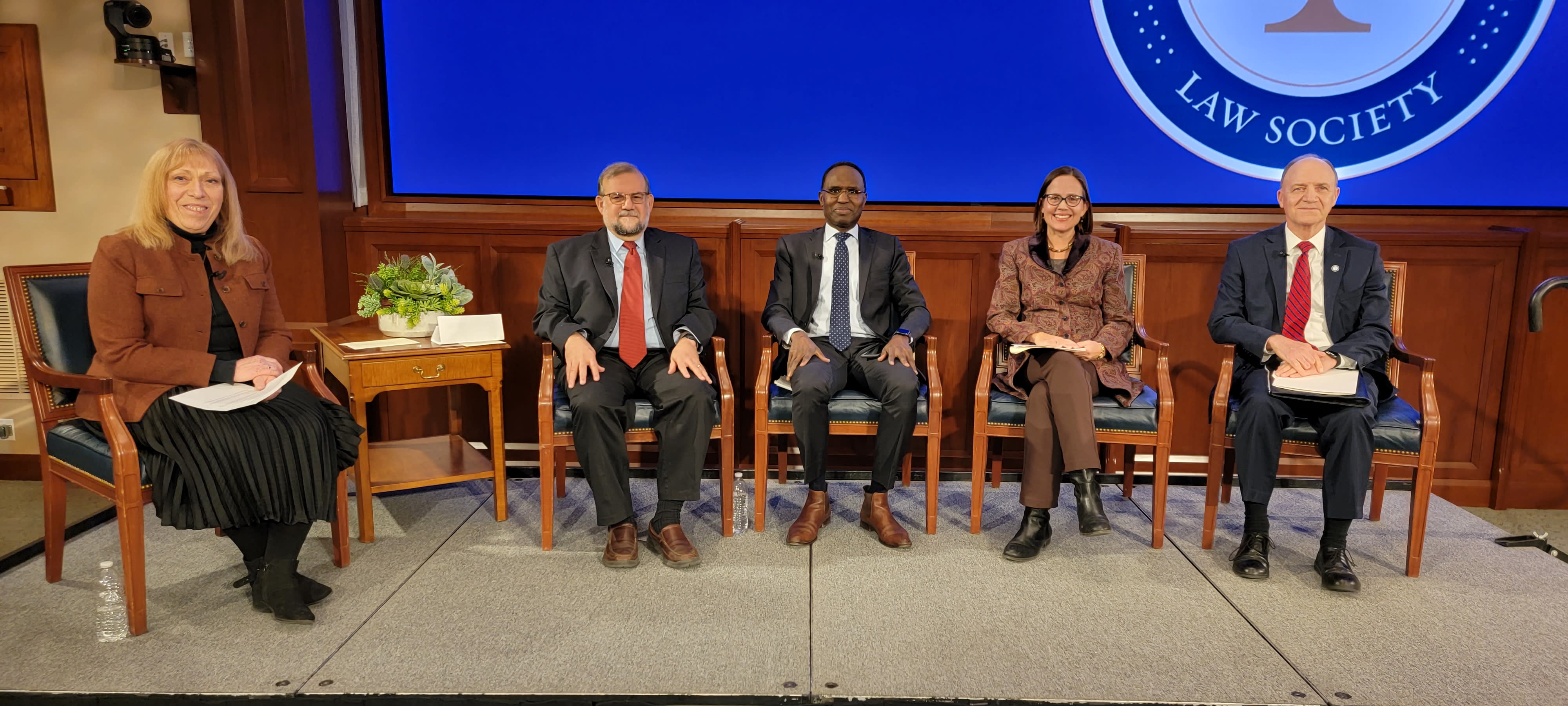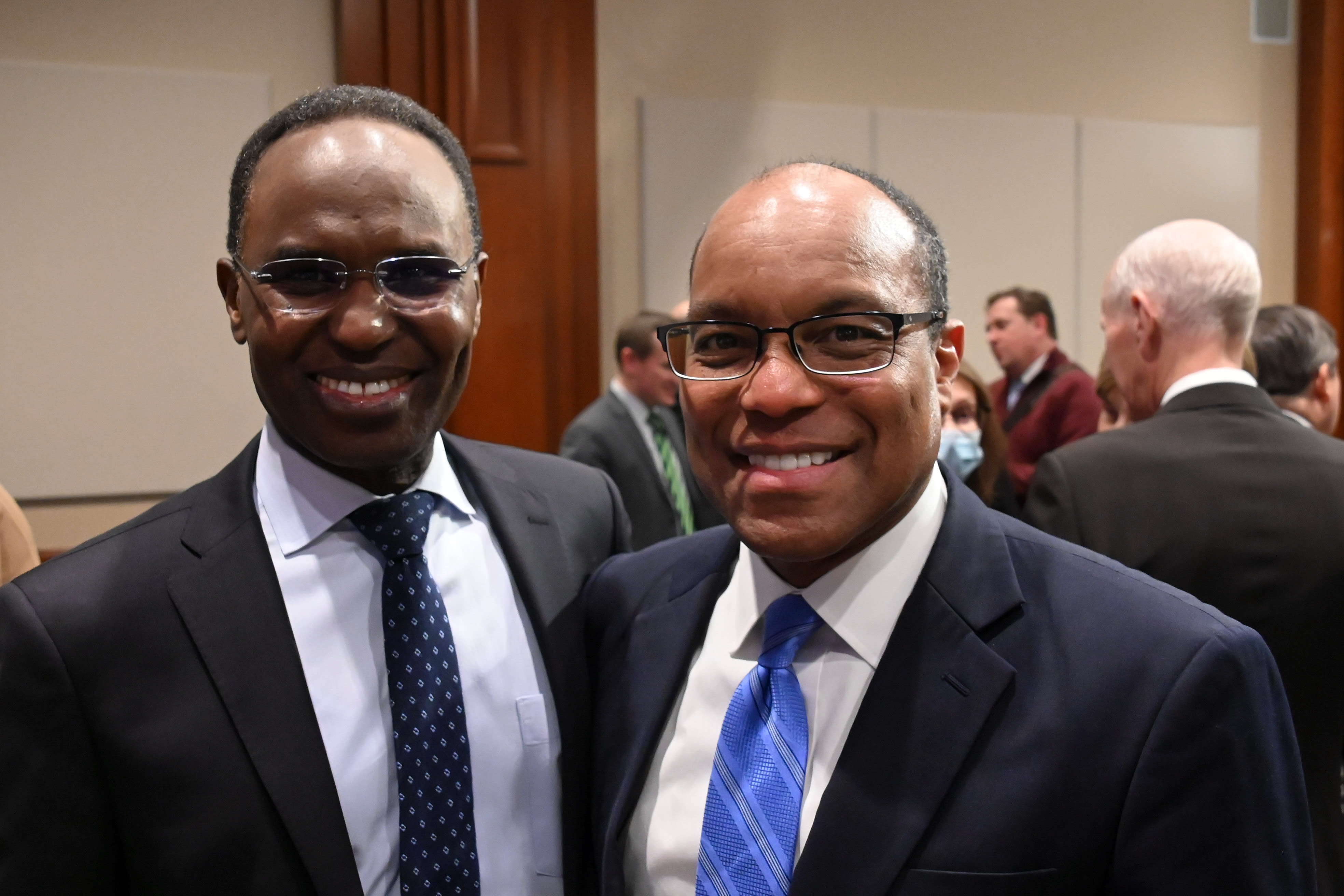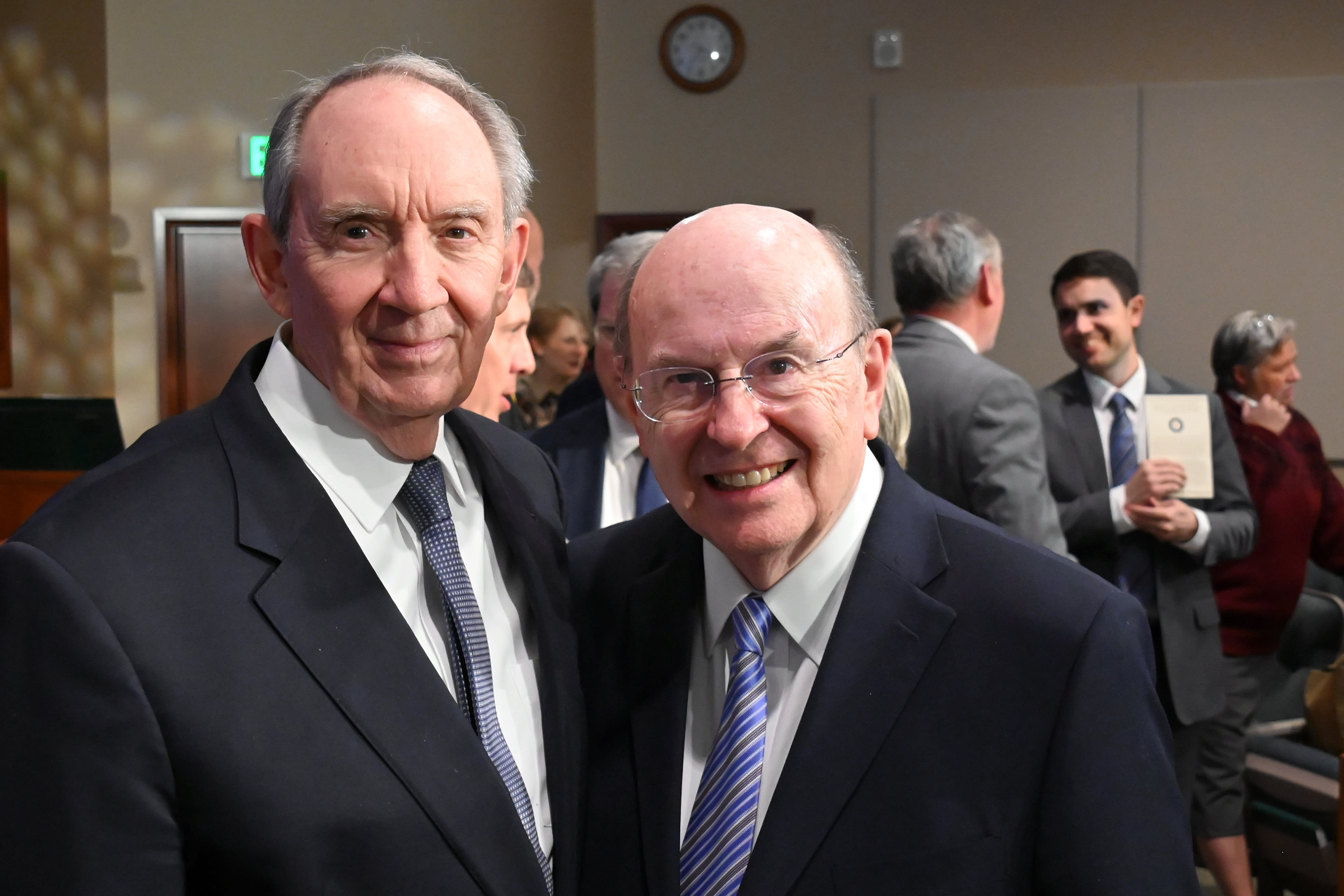By Jennifer Long
Feb 27, 2023 | 11:20 AM
The topic of the Annual J. Reuben Clark Law Society Fireside held on January 19, 2023 was “Love Thy Neighbor.” In contrast to years past with only a single speaker, this fireside featured religious leaders from the Jewish, Lutheran, Muslim, and LDS communities. Speaking to an audience at the Conference Center Little Theater in Salt Lake City, the panel discussed concrete ways to work and serve together to benefit our communities. The evening began as the Accra Ghana JRCLS chapter accepted the Franklin S. Richards Service Award for partnering with the local organization Serve the Children at the Golden Gate International school to help educate the youth in the community.
Annette Jarvis, Chair of the Board of Directors of the J. Reuben Clark Law Society, moderated four panelists: Deanna A. Thompson, Director of the Lutheran Center for Faith, Values and Community at St. Olaf College; Burton L. Visotzky, Professor of Interreligious Studies at the Jewish Theological Seminary; Mohammed Elsanousi, Executive Director of the Peacemakers Network; and Elder Paul B. Pieper, General Authority Seventy of the Church of Jesus Christ of Latter-day Saints.
To begin the discussion, Dr. Thompson introduced Martin Luther and his struggle to find peace with God. Dr. Thompson said that Luther realized, when reading in Romans, that he should worry less about himself and focus more on serving others with love. Dr. Thompson pointed out, “we all have a vocation….a vocation is where you are responsive to gifts God has given you and you use those gifts to serve others.” Furthermore, she pointed out that we often think of our service as a unilateral relationship where we give one way to one person. Instead, she suggested that we think of our relationships bilaterally, more as friends serving each other, and recognize that we create a mutual give-and-take relationship that strengthens everyone involved. As an example, Dr. Thompson explained while she was recuperating from cancer she felt that she was a recipient of this bilateral service, and it made all the difference.
Rabbi Visotsky began by quoting Rabbis discussing the Old Testament. In Leviticus 19, we are commanded to “be holy.” The Rabbis wanted to know exactly how to “be holy.” Rabbinic teaching explains “being Holy” means treating Jews and non-Jews alike, as neighbors. “Your neighbor does not have to be of the same faith,” in fact, service outside your religion is important. Rabbi Visotsky explained that one of his close colleagues and good friends is Catholic Archbishop Timothy Dolan. Archbishop Dolan and Rabbi Visotsky work together to create a “dialogue of love” after years of religious grievance. Rabbi Visotsky cited another example of this essential dialogue when he commended the Latter-day Saint community on how the youth of the Church serve missions and share love throughout the world. Rabbi Visotsky added that by the time these students get to law school, “they have been out in the world….they have done service.”
Continuing on in the program, Mohammed Elsanousi spoke of an “alliance of virtue” where religious communities are brought together to help those in need. Quoting from the Koran, he explained that Muslims are encouraged to engage in service. “We must concern ourselves with how to protect one another.” During the height of the COVID-19 pandemic, Elsanousi created an interfaith network, “Faith For Vaccines,” to promote vaccines for underrepresented groups that might otherwise fall by the wayside. Elsanousi explained the organization focused on collaborating with mosques, churches, and temples to work together as vaccination sites for the elderly and undocumented immigrants. Elsanousi cited an example in Florida, “where a Baptist church, mosque and synagogue vaccinated Holocaust survivors.” He said, “that is the power of interreligious work.” Service in the community does not have to be constrained by religious boundaries.
Elder Paul B. Pieper talked about the impact of religious freedom in the community and creating communities of “one heart and one mind” (Moses 7:18). Elder Pieper affirmed, “when we focus on helping those in need, we are all children of one God.” He continued, “when we start out from a position of faith and take time to put faith first, then God will lead us.” Elder Pieper gave the example of the JRCLS Mexico chapter teaming together with interreligious councils and local government entities to monitor and analyze the impact of religious freedom on legislation. “They worked together to balance freedom of belief with the rights emerging in our modern societies.”
The fruitful panel discussion emphasized that the special skillset held by lawyers has the potential for bringing about much good in the world. Unlike other legal organizations, the JRCLS goes further than advancing legal careers, and focuses its efforts on blessing the global community. When we work across different faiths and build lasting relationships, we can advance our good works and strengthen our communities.



